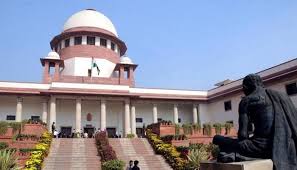The Supreme Court delivered a significant judgment reaffirming the legal principle concerning the scope of testimony allowed from individuals acting under a power of attorney. This ruling emphasizes the limitations on the authority of power of attorney holders when providing testimony.
Background:
The case in question involved a challenge to the relevance and admissibility of testimony from a power of attorney holder. The court examined the legal framework governing the role of such individuals, considering established precedents and statutes.
Key Points of the Judgment:
- Authority Limitations: Power of attorney holders may represent others in legal or financial matters but their authority is restricted concerning providing testimony.
- Personal Knowledge Requirement: Testimony should be confined to facts the holder personally knows and has direct knowledge of.
- Exclusion of Hearsay Evidence: Power of attorney holders cannot offer hearsay evidence or speculate on matters beyond their personal involvement or awareness.
- Purpose: The ruling aims to maintain the integrity of legal proceedings by ensuring testimonies are grounded in firsthand knowledge rather than conjecture or secondhand information.
Reaction and Implications:
- Legal Expert Reception: Legal experts welcome the clarity provided by the ruling, emphasizing its reinforcement of testimonial integrity and the reliability of evidence.
- Expected Impacts: The decision is anticipated to have far-reaching implications, particularly in cases where the testimony of power of attorney holders is significant evidence.
Conclusion:
The Supreme Court’s ruling establishes a significant precedent by delineating the permissible boundaries of testimony for power of attorney holders. It underscores the importance of factual accuracy and firsthand knowledge in judicial proceedings, thus upholding the principles of fairness and justice.
Multiple Choice Questions (MCQs):
- What did the Supreme Court ruling reaffirm?
- A) The authority of power of attorney holders
- B) The limitations on the testimony scope of power of attorney holders
- C) The admissibility of all testimony from power of attorney holders
- D) The irrelevance of power of attorney holders in legal matters
- Answer: B) The limitations on the testimony scope of power of attorney holders
- What requirement does the Supreme Court emphasize regarding testimony from power of attorney holders?
- A) Testimony should be based on speculation
- B) Testimony should be grounded in firsthand knowledge
- C) Testimony can be based on hearsay evidence
- D) Testimony can cover matters beyond the holder’s personal involvement
- Answer: B) Testimony should be grounded in firsthand knowledge
- What is the purpose of the Supreme Court ruling regarding testimony from power of attorney holders?
- A) To expand the authority of power of attorney holders
- B) To exclude power of attorney holders from legal proceedings
- C) To ensure testimonies are grounded in firsthand knowledge
- D) To allow for speculation and hearsay evidence in court
- Answer: C) To ensure testimonies are grounded in firsthand knowledge
